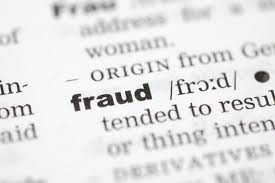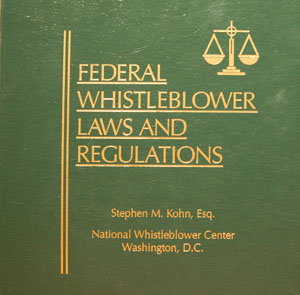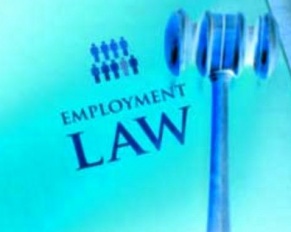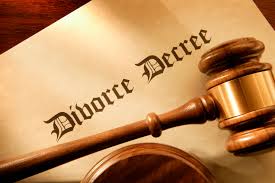 The False Claims Act is also called the “Lincoln Law” and is a federal law of America that imposes liability to federal contractors who defraud programs set up by the government. There is a provision that allows for those who are not affiliated with the government to also file actions for the government. Those that file can receive about fifteen to twenty?five percent of any of the recovered damages. Claims have typically been in health care, military, and other government spending programs. The government recovered almost $22 billion between 1987 and 2008 through the False Claims Act.
The False Claims Act is also called the “Lincoln Law” and is a federal law of America that imposes liability to federal contractors who defraud programs set up by the government. There is a provision that allows for those who are not affiliated with the government to also file actions for the government. Those that file can receive about fifteen to twenty?five percent of any of the recovered damages. Claims have typically been in health care, military, and other government spending programs. The government recovered almost $22 billion between 1987 and 2008 through the False Claims Act.
 When pursuing a whistleblower case the first step is to carefully check all th laws ans statutes that may apply to your given situation. An example is that although the Whistleblower Protection Act is well?known and has been extensively talked about it only actually covers a small part of the working population. When trying a case and not a federal employee, the case gets covered under different rules of protection altogether. An employment lawyer can work with you to set up some specific laws that pertain to your case if you are going to seek legal recourse.
When pursuing a whistleblower case the first step is to carefully check all th laws ans statutes that may apply to your given situation. An example is that although the Whistleblower Protection Act is well?known and has been extensively talked about it only actually covers a small part of the working population. When trying a case and not a federal employee, the case gets covered under different rules of protection altogether. An employment lawyer can work with you to set up some specific laws that pertain to your case if you are going to seek legal recourse.
 Media finds whistleblowers as a popular subject and has for a long time. The Enron scandal is remembered by most Americans. Many debate whether the intelligence workers like Edward Snowden or Bradley Manning might qualify as “whistleblowers”. Most are aware of the Whistleblower Protection Act of 1989 as well that gets formed into the backbone of the whistleblower protection in theUnited States. The history of the concept of a whistleblower dates further back and includes an interesting history that gives the modern law there context.
Media finds whistleblowers as a popular subject and has for a long time. The Enron scandal is remembered by most Americans. Many debate whether the intelligence workers like Edward Snowden or Bradley Manning might qualify as “whistleblowers”. Most are aware of the Whistleblower Protection Act of 1989 as well that gets formed into the backbone of the whistleblower protection in theUnited States. The history of the concept of a whistleblower dates further back and includes an interesting history that gives the modern law there context.
 The Whistleblower Protection Act, or WPA, gives protection from retaliation or persecution to government employees that disclose to the police illegal and improper conduct that goes on in the workplace. The law is to protect any federal employees who uncover some wrongdoing and report it to authorities. Under the WPA, the government agency accused is not allowed to end the employment or “bully” a worker of government contractors, science based agencies like NASA, or national security personnel.
The Whistleblower Protection Act, or WPA, gives protection from retaliation or persecution to government employees that disclose to the police illegal and improper conduct that goes on in the workplace. The law is to protect any federal employees who uncover some wrongdoing and report it to authorities. Under the WPA, the government agency accused is not allowed to end the employment or “bully” a worker of government contractors, science based agencies like NASA, or national security personnel.

Federal and state governments have created many laws regarding employment practices to ensure safe and fair workplaces are available to all employees. Any New Jersey employment law attorney will tell you that these laws are put into place to make workplaces safe for all parties involved. Employers must keep up on the laws to ensure that they are providing a safe workplace for their employees that is free from discrimination and harassment. It is critical that employees have a good understanding of employment laws so that they can be sure their rights are not violated and be sure they are working in a safe and legal environment. Employment law covers many areas and maybe different between states. Here are some of the questions that employment layers are often asked.
 All our lives we acquire and lose things. We buy, we sell, trade and borrow. We spend all day at jobs to buy the things we desire. It’s not only physical things that we acquire however. We also acquire retirement plans, bank accounts, investments, and debts. We gain some of these things before marriage and some during. If and when these marriages come to an end assets must be divided between spouses. This is never easy and it’s important to understand your rights so that you receive a fair settlement. It’s wise to get a good understanding of exactly what the value of all these assets are and to hire some professionals such as an attorney and an accountant or actuary to help with this process.
All our lives we acquire and lose things. We buy, we sell, trade and borrow. We spend all day at jobs to buy the things we desire. It’s not only physical things that we acquire however. We also acquire retirement plans, bank accounts, investments, and debts. We gain some of these things before marriage and some during. If and when these marriages come to an end assets must be divided between spouses. This is never easy and it’s important to understand your rights so that you receive a fair settlement. It’s wise to get a good understanding of exactly what the value of all these assets are and to hire some professionals such as an attorney and an accountant or actuary to help with this process.
 Going through divorce means big changes for both parties. Daily life changes drastically, new lifestyles must be built, and assets must be divided. It takes a lot of planning and careful consideration in order to protect yourself and your fair share of your assets in divorce. There are many tricky things to divide up from homes and vehicles to bank accounts and retirement plans. Tricky or not, retirement plans are often one of the largest assets that couples have to divide in divorce and are therefore extremely important. In order to make sure that you are getting your fair share you’ll need to have a deep understanding of what you are legally entitled to as well as probably hire a qualified attorney to help you sort the matter out.
Going through divorce means big changes for both parties. Daily life changes drastically, new lifestyles must be built, and assets must be divided. It takes a lot of planning and careful consideration in order to protect yourself and your fair share of your assets in divorce. There are many tricky things to divide up from homes and vehicles to bank accounts and retirement plans. Tricky or not, retirement plans are often one of the largest assets that couples have to divide in divorce and are therefore extremely important. In order to make sure that you are getting your fair share you’ll need to have a deep understanding of what you are legally entitled to as well as probably hire a qualified attorney to help you sort the matter out.
 Huge changes come with divorce across all aspects of life. Your finances are certainly not immune and it’s important to understand and protect your pension rights. Couples already in or approaching retirement will find this to be even more important. Couples will typically have all sorts of assets but retirement plans and funds are often one of the largest. They must be divided fairly and in accordance with the law. It’s critical to understand your divorce pension rights when dividing these assets; otherwise it will be extremely difficult to ensure you get your fair share. Don’t let your divorce ruin all that you have worked for and saved toward retirement!
Huge changes come with divorce across all aspects of life. Your finances are certainly not immune and it’s important to understand and protect your pension rights. Couples already in or approaching retirement will find this to be even more important. Couples will typically have all sorts of assets but retirement plans and funds are often one of the largest. They must be divided fairly and in accordance with the law. It’s critical to understand your divorce pension rights when dividing these assets; otherwise it will be extremely difficult to ensure you get your fair share. Don’t let your divorce ruin all that you have worked for and saved toward retirement!

When an individual schedules an appointment to talk with a bankruptcy attorney in NJ they may be given several options including filing either a Chapter 7 or a Chapter 13 bankruptcy. If they have too much income they may not be able to file a Chapter 7 bankruptcy. But the Chapter 13 may be much more advantageous in some situations than the Chapter 7. There are certain situations where one option is better than the other and in many instances a Chapter 13 is preferred over a Chapter 7. InNew Jerseya Chapter 13 bankruptcy is the only available choice if you are behind on business payments or a mortgage and you still want to keep your property when the bankruptcy process is complete. When you file a Chapter 13 bankruptcy there is the unique opportunity to make up all of the overdue payments over an extended period of time and then reinstate the mortgage agreement that was originally made. Most of the time, the payment plan is developed to last for between 3 and 5 years.

